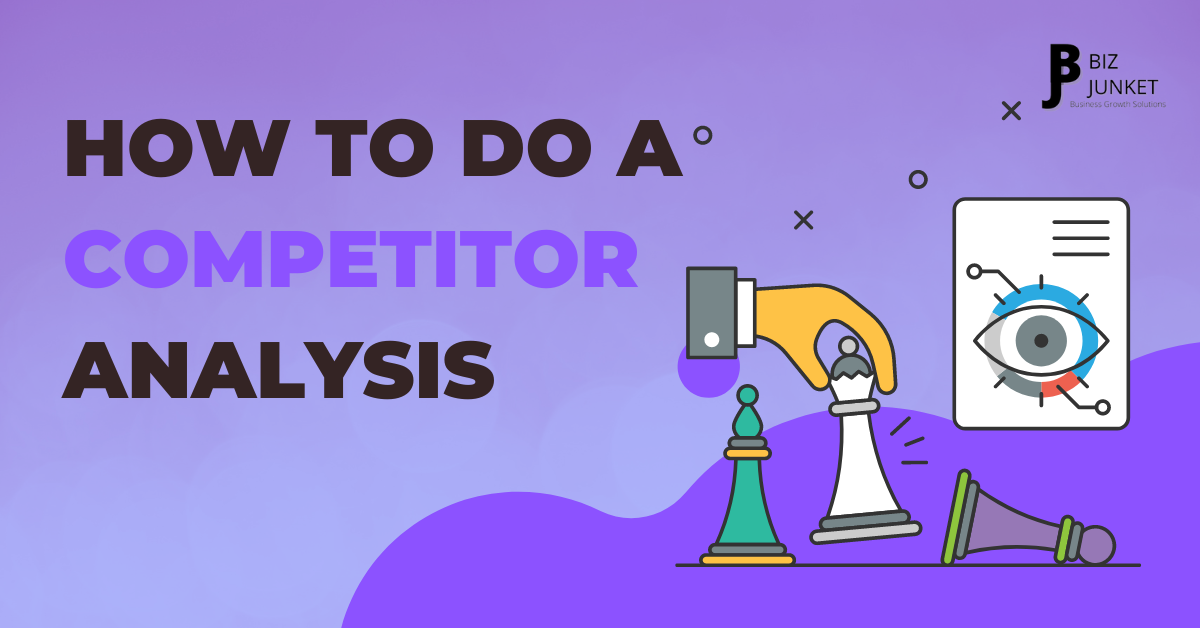
Google ranks websites based on the quality of their content, and website owners are always looking to improve the quality of their site’s content to get higher rankings in search engines. That makes ranking number one on Google very important, but it’s only half the battle.

You need to also ensure that your competitors are not getting more traffic than you are! How can you do this? Through competitor analysis! If you know what your competitors are doing right and where they might be lacking, you can use these insights to better position your own site to get more traffic from the search engines than your competitors do!
For many business owners, it’s easy to become so wrapped up in their own products or services that they fail to notice what the competition is doing right or wrong. This can lead to losing customers, reduced sales and even going out of business entirely if you don’t keep an eye on how you compare to your competitors.
Competitor analysis is one of the most valuable tools you can have as an online business owner. Without it, you’ll never be able to identify your weaknesses and improve upon them. With it, you can start to rise above your competitors and establish yourself as an authority in your niche market. So don’t neglect your competitor analysis, and read on to learn how to do one effectively.
What is it?

Competitor analysis is an analysis that compares your business and products or services with those of your competitors. The goal is to determine how successful you will be in relation to them. If you are competing directly, then information such as their advertising budget and promotion schedule may be included.
This can help ensure that you use similar tactics and don’t leave any stones unturned when it comes to marketing and promotion. However, even if there aren’t any direct competitors, a competitor analysis can help create benchmarks against which you can measure yourself as well as make educated decisions about how much money should be allocated for marketing efforts.
The purpose behind competitor analysis is to examine the strengths and weaknesses of your competitors in order to determine how successful you’ll be with your business. The results can be used to help make decisions such as how much money you should spend on advertising and whether or not you should market at all.
Why do it?

Before you do anything else, it’s important to know your competitors. Not only will competitor analysis give you an idea of how big your potential market is and which products and services are available, but knowing your competition will help shape future business decisions.
For example, say your research indicates there’s room in a market for new landscaping companies that specialize in low-maintenance gardens for apartment buildings. If you decide to start such a company and discover there already is one locally, it may not make sense for you to invest time and money into getting started when another company has already beaten you out. It’s better not to run with scissors…or start competing head-to-head with established businesses or brands.
Don’t forget about potential business partners. If you plan on selling products, for example, it’s important to know what other companies are doing in your industry—and whether there’s enough room for them all. Be sure to look into new and growing companies as well as well-established ones.
Who can do it?

Your business can do it. You know your industry, or at least one similar to it. You know who you’re competing against and what they’re doing right (and wrong). By carefully studying your competition, you can gain a better understanding of where there are opportunities for you to innovate, grow and succeed.
Doing competitor analysis is also an important step in developing marketing strategies that will set you apart from others in your niche. It’s not enough to be different—you have to be better than them. When done right, competitor analysis can tell you what features consumers want so you can create products and services that exceed their expectations and provide value they may not even be able to imagine yet.
Your client can do it. You know your customer base, their demographics, and you’re likely familiar with at least some of their competitors’ brands. The better you know your target audience, the more effectively you’ll be able to differentiate yourself from competitors and sell them on what you’re offering—as well as how what you’re offering is superior or different in ways they will appreciate.
When should you do it?

A good time to complete your competitor analysis is when you’re getting ready to launch your product or service. Your plan will be much more thorough if it includes details about how you’re different from and better than everyone else who does what you do. Also, make sure that your analysis incorporates new competitors.
Don’t forget about emerging trends, too—and don’t be surprised if big companies with loads of cash copy you down to the last detail. They might even go so far as trademarking terms that describe what you do so they can prevent other organizations from using them in their marketing materials! In today’s market, innovating isn’t enough; if you want to survive and thrive in business, you have to protect your turf from copycats.
What if I don’t want to know?

E-Myth Revisited by Michael E. Gerber and The 22 Immutable Laws of Marketing by Al Ries and Jack Trout are great reads for anyone interested in learning about how to develop successful marketing strategies for your business. Both books offer practical advice on how to do research, target your audience and create an effective plan.
The art lies in knowing where you need help or guidance in your business operations, so even if these two books aren’t directly applicable, they could provide inspiration for topics that are specific to your industry or startup environment. Either way, it’s important you know how your competition is approaching their marketing initiatives and what weaknesses might be in their approaches that you can capitalize on with yours.
You can take advantage of your competitors in two ways. First, you can mimic their strategies, or even their tactics, which is what I call competitive facilitation. Second, you can differentiate yourself from them by offering something entirely new that gives customers an incentive to choose your brand over another. This technique is called competitive disruption.
Useful resources

There are several ways you can analyze your competition. The first step is to do a basic web search for your product or service (as well as any keywords associated with it). Take note of how other businesses are marketing their products, what they say they offer, and how they describe their business models. You should also take screenshots from other websites that showcase aspects of their brand identity—this can include logos, taglines, homepage designs, etc.
You can also use social media platforms like Facebook and Twitter as additional resources. Not only can you see how businesses market themselves on these platforms, but you’re likely to find social media posts that mention or recommend their products or services.
Some good questions to ask when doing your competitor analysis include:
1). What are their pricing structures?
2). What types of products do they sell?
3). How does their business model differ from yours?
Why do a competitor analyze?
To get ahead, you need to know what others in your industry are doing. While you can use social media or other marketing techniques, there’s nothing like an old-fashioned competitor analysis.
This gives you an idea about how your competitors compare in terms of business size, social media presence, and more. Plus, it gives you a chance to do some background research on new players in your niche. You never know when someone else will come out with something that changes how people see your industry—and if they do it better than you do (or cheaper), odds are good that they’ll take over market share from you very quickly!
Who will benefit from a competitor analysis?: Businesses at all stages will benefit from doing an in-depth competitor analysis. If you’re new, it helps you plan what your target market and niche should be. If you’re already established, it shows you where your marketing is falling short and where new opportunities may exist. And even if you have limited cash flow or time constraints, competitive intelligence gives you valuable insight into what’s happening in your industry that might need your attention sooner rather than later.